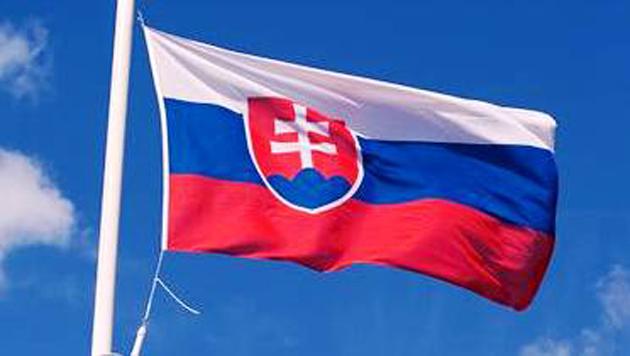Hungary's Jobbik party agitates in Slovakia, sparking protests

A rally held by the Hungarian ultra-right Jobbik party in the Slovak town of Dunajská Streda during which right-wing extremists tried to reach voters for April’s parliamentary elections in neighboring Hungary has sparked protests in Slovakia. Ultra-right politician Péter Pallér presented himself in Dunajská Streda as a candidate for "Felvidék" or "Upper Hungary", as Slovakia was called during the time of the Hungarian monarchy.
Many Slovaks are very sensitive to the use of that term. Some members of the Dunajská Streda town council now want to ban the holding of such events in municipally-owned facilities.
According to Friday’s edition of the Slovak daily Pravda, those opposed to the Hungarian right-wing campaign gathered last Tuesday evening in front of the cultural center in Dunajská Streda and demonstrated against it with posters reading "Jobbik, calm down!" and "No to Nazism". "We are protesting against the export of Nazi ideas," declared Marián Ravasz, a town councilor with Most-Híd, the party that represents Slovakia’s large ethnic Hungarian minority.
"I do not understand at all what a foreign political party is after here, and I mainly do not understand one of these gentlemen being listed as a candidate for ‘Upper Hungary’," said Ravasz. Most-Híd reportedly had nothing to do with the Jobbik event and has condemned it.
In Hungary, parliamentary elections will take place on 6 April in which Hungarian citizens living abroad can participate, either actively or passively. Roughly three years ago Budapest made it easier for members of ethnic Hungarian minorities living abroad to receive Hungarian citizenship without permanently residing in Hungary.
Bratislava responded to Hungary’s move by adopting a law stating that Slovak citizens who assume the citizenship of another country will lose their Slovak citizenship. The daily Pravda reports that there are no precise data on how many ethnic Hungarians living in Slovakia have applied for Hungarian citizenship.
Official figures state that more than 700 people have lost Slovak citizenship since the dual citizenship ban was adopted. However, most of them did not apply for Hungarian citizenship.
Almost half a million ethnic Hungarians live in Slovakia. No one from the town hall in Dunajská Streda is now expressing support for the Jobbik campaign event.
The cultural center where the event was held is run by an organization financed by the town, which is located not far from Bratislava. Town councilors representing Most-Híd as well as independents want to push through a resolution next week that would ban similar events in municipal facilities.
"What we want to achieve with this resolution is that movements and political parties that are not registered in Slovakia and organizations spreading hatred of other communities should not be able organize social events in municipally-owned facilities," Ravasz said. Jobbik, also known as the "Movement for a Better Hungary", is the third-strongest party in the Hungarian parliament, where its lobbying is strongly nationalist, and has repeatedly drawn attention for campaigning against minorities.